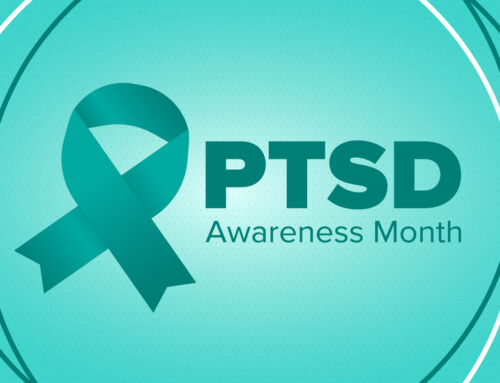Anyone who’s ever made the decision to receive addiction treatment services for a drug abuse or alcohol addiction has wondered if there’s such a thing as a typical day in rehab. Although many drug and alcohol rehab programs offer similar services, what happens when you go to an addiction treatment program depends on several factors, including the severity of your addiction, whether you choose an inpatient or outpatient substance abuse treatment program and whether you have any mental health disorders. So, what is drug rehab like? Although your experience won’t be exactly the same as anyone else’s, here’s an idea of what you can expect as you start on the path toward long-term recovery.
Initial Addiction Treatment Assessment
Whether you choose a partial inpatient or intensive outpatient program, you’ll undergo an initial drug or alcohol addiction assessment before the treatment process begins. This assessment is overseen by medical reviewers and helps the facility’s team determine if you have any co-occurring disorders that need to be addressed along with your substance use disorder. For example, it’s important for your treatment provider to know if you have depression or bipolar disorder as these diseases can affect the course of your rehab program.
An initial assessment also helps identify family problems, health issues and other concerns that could affect medical detox and the treatment options that are available to you. When you arrive for your assessment, you’ll have the opportunity to meet with staff members, obtain professional medical advice and learn more about the addiction center, allowing you to get comfortable before participating in one-on-one or group activities.
Don’t go through the process of recovery alone. There are people who can help you with the struggle you’re facing. Get in touch with one today.
If you have coverage of any kind from a major insurance provider, your treatment is likely covered. We promise to keep your information confidential.
Are you ready to get on the road to recovery?!
Call us today or verify your insurance. Our team will do the necessary research to run a no-cost, confidential approval of your specific policy so you can start treatment today.
What is Rehab Like Day-to-Day?
Structured Routine
Inpatient treatment and intensive outpatient programs provide a structured environment in which to address your addiction. If you choose an inpatient rehab, don’t expect to spend a lot of time sleeping or spending time on your own. A typical day in an inpatient treatment program usually begins early, giving you the opportunity to make the most of the time you have at the residential rehab center. If you attend a partial hospitalization or intensive outpatient program, you may have to arrive at the outpatient treatment center early in the morning to ensure you’re ready to participate in counseling and behavioral therapies, group therapy and other activities as soon as they begin.
Addiction Treatment: Therapy Sessions
One of the most common things that happen at treatment programs is that you’ll spend much of your time addressing your alcohol or drug addiction issues in individual therapy. Individual behavioral therapy helps uncover the triggers that cause alcohol or substance use cravings. You’ll also have free time to discuss past trauma, family problems and other issues that contributed to the development of your addiction, as well as to develop a plan for long term sobriety.
Taking part in group counseling sessions is also a big part of the healing process. During group sessions, you’ll gain emotional support and have the opportunity to listen to other people’s experiences with substance use disorders and think about how you might apply them to your own life. Group members may share their triumphs and failures, creating a sense of community and providing much-needed support for new members.
Some treatment providers also offer family therapy sessions, which are helpful for healing damaged relationships. It’s common for an addict’s behavior to damage relationships with spouses, children, parents, siblings and other loved ones. Including family members in your treatment plan can help you address conflict in a healthy way. If any of your family members or other members of your support system have a history of addiction, you’ll also have the opportunity to explain how their addiction affected you.
Wellness Activities and Physical Health
During a typical day in rehab, you may also have the opportunity to participate in a variety of wellness activities. It’s important to keep your body healthy while you’re going through detox, and it’s also important to reduce your stress level as much as possible. Activities such as meditation and yoga can help you limit stress and keep your body strong as you work through the issues that led you to develop an addiction. Additionally, art and music therapy can help you discover new outlets for stress and anxiety as you strive to learn new coping mechanisms.
Nutrition and health are an important part of recovery. When you use illicit drugs or excessive amounts of alcohol, your body can quickly become deprived of the nutrients it needs to help you achieve optimal health. Alcohol and drug abuse are hard on the body in other ways, too, negatively affecting vital organs, body weight, energy levels and even your ability to get a good night’s sleep.
Your addiction recovery will typically address more than just mental health issues, helping you take hold of your physical wellbeing by incorporating exercise and a nutritious eating plan.
Goal Setting
When you attend drug or alcohol rehab, setting goals for the future is pivotal. Typically, a counselor will work alongside you and other patients to discuss your plans for continued recovery and success. During your time in treatment, you’ll spend many of your days setting small, achievable goals and celebrating victories as they occur.
You’ll also learn how to continue setting goals for yourself, both short- and long-term after you’ve completed your treatment. While some of these goals will be focused on your addiction, many will be rooted in other important parts of your life, including relationships, work, emotional health and spirituality.
Alcohol and Drug Abuse Rehab Rules and Guidelines
You can also expect the addiction treatment facility to have a set of rules to protect everyone’s privacy and ensure the rehab facility is as safe as possible for everyone in need of substance abuse treatment. Most rehab centers and treatment facilities prohibit alcohol and drug paraphernalia, threatening behavior and any conduct that could be deemed inappropriate. This is true for any outpatient or inpatient program. If you participate in support groups, you’ll be expected to keep confidential information to yourself.
This means you shouldn’t share information about other group members with your family, friends or other people outside of your support group. You should also expect to be required to attend all meetings and counseling sessions as scheduled by your treatment provider. These guidelines ensure you have the best possible chance at completing treatment and remaining on the road to recovery long after you leave the treatment center.
If you or a loved one are ready to get help with addiction, contact Greenbranch Recovery at 833-272-6246. Our rehab center in NJ has a partial hospitalization program as well as general and intensive outpatient programs to meet your unique needs as you start the recovery process.




